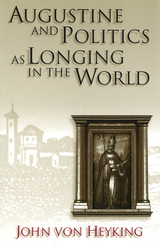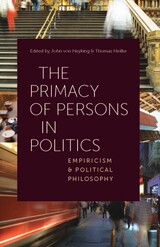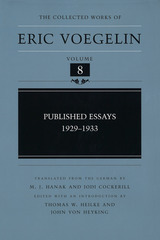
Saint Augustine's political thought has usually been interpreted by modern readers as suggesting that politics is based on sin. In Augustine and Politics as Longing in the World, John von Heyking shows that Augustine actually considered political life a substantive good that fulfills a human longing for a kind of wholeness.
Rather than showing Augustine as supporting the Christian church's domination of politics, von Heyking argues that he held a subtler view of the relationship between religion and politics, one that preserves the independence of political life. And while many see his politics as based on a natural-law ethic or on one in which authority is conferred by direct revelation, von Heyking shows how Augustine held to an understanding of political ethics that emphasizes practical wisdom and judgment in a mode that resembles Aristotle rather than Machiavelli.
Augustine and Politics as Longing in the World demonstrates some of the deficiencies in the way Augustine's political thought has been interpreted. It also explains why a rereading of his thought illuminates the current debates between "secularists" and proponents of "orthodoxy" and shows why these debates are miscast. By examining Augustine's political thought, von Heyking provides a way of resolving this controversy and shows how we can move beyond conflicting claims and thus moderate yet elevate political life.
Behind Augustine's apparent antipolitical rhetoric lies his substantial agreement with his Roman philosophical interlocutors on virtue and politics. This allegedly antipolitical rhetoric is meant to tame the lust for domination of Roman patriots by showing that lust can never be satisfied by political goods. By opposing extreme "worldliness" with extreme "otherworldliness," Augustine appears to reject politics as a natural good. On the contrary, he affirmed politics as a natural good.
Augustine and Politics as Longing in the World shows how Augustine's belief that politics was a way for humans to fulfill their longings for a kind of wholeness discloses a deeper affirmation of a more meaningful, pluralistic, and robust political life than his interpreters have previously appreciated.


This volume of The Collected Works contains essays published by Eric Voegelin between 1929 and 1933, the period between the publication of his first book, On the Form of the American Mind, and Hitler's rise to power, as well as Voegelin's two books analyzing the explosive race issues posed by National Socialism. The essays herein reflect the intellectual and political tumult of the period and their author's maturing grasp of political reality as he moved away from positivism and Kelsen's "Pure Theory of Law" toward a more refined and open philosophical stance. The heart of this shift is signaled by his emphasis on philosophical anthropology and on the decisive importance of the moral substance basic to political communities.
The topics of the essays are grouped around major themes in sociological theory, political science, and the theory of law. They illuminate the theoretical and practical impact of Voegelin's experiences in America as he increasingly engages European theories of state, especially the social theories of leading French and German scholars. In content, these essays include such pragmatic concerns as American theories of property, economic transactions, due process of law, and Austrian constitutional reforms.
Voegelin also explores the technically complex speculative matters surrounding sovereignty and law, Max Weber's science, and the spiritual form of Europe. He analyzes Kant's understanding of moral duty and the meaning of solidarity as the substance of democratic society. Through these discourses, readers can see how the theme of divine transcendence increasingly finds expression during this crucial early stage of Voegelin's scholarly life. Thus, these studies mark the early path Voegelin took in making his arduous journey from legal scholar to philosophical political scientist. They display his increasingly resolute attention-- against challenges both existential and urgently political--to a growing insight into what it means to be fully human as he struggles toward an eventual philosophy of politics and history sufficient to amplify that noble insight.
READERS
Browse our collection.
PUBLISHERS
See BiblioVault's publisher services.
STUDENT SERVICES
Files for college accessibility offices.
UChicago Accessibility Resources
home | accessibility | search | about | contact us
BiblioVault ® 2001 - 2024
The University of Chicago Press









